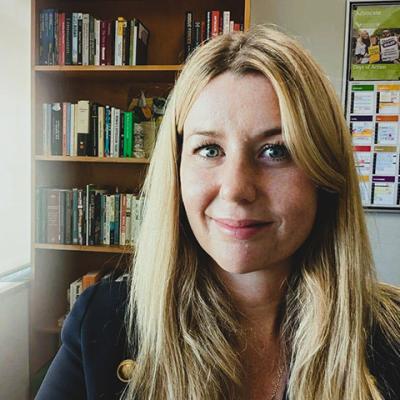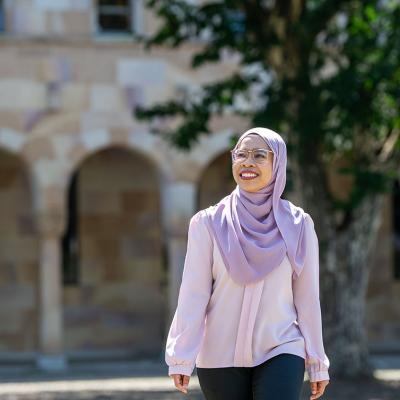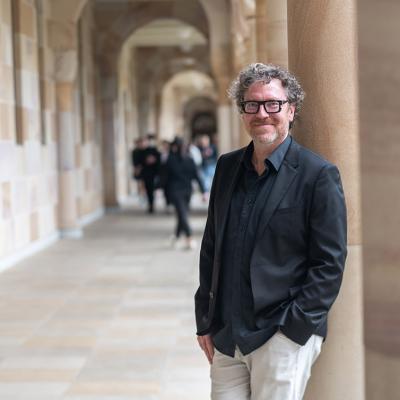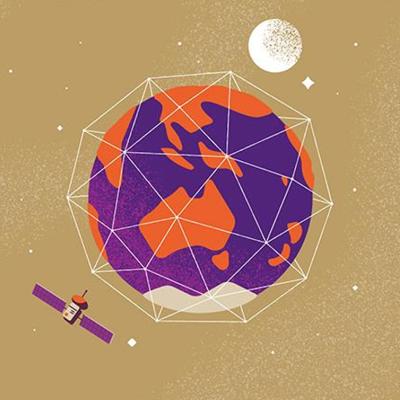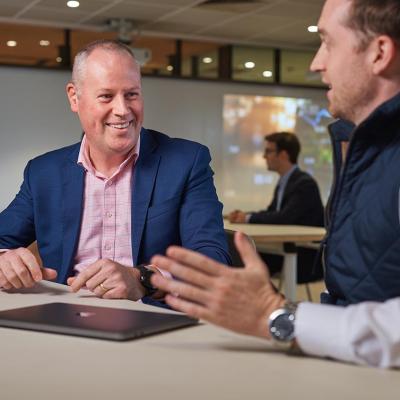Norwegian sociologist Johan Galtung, principal founder of the peace and conflict studies (PACS) discipline, talked about peace and conflict as being two sides of the same coin: we need to think about conflict by thinking through peace and vice versa.
Dr Melissa Johnston, lecturer in UQ’s peace and conflict studies, is deeply passionate about solidarity as a political response to inequality, especially gender inequality. Her research explores brideprice – the money or goods given to the bride’s family when she gets married – and its relationship to conflict, class and violence against women.
“I like being able to look at something like gender or class inequality and find underlying reasons or patterns behind it,” Melissa says.
“I guess I’d say that my research asks ‘who gets what, when and how?’ but focuses on gender and class aspects of these questions.”
Melissa is the Deputy Director of UQ’s Rotary Peace Centre and recipient of the esteemed Discovery Early Career Researcher Award (DECRA), which supports her fascinating research in the area of peace and conflict.
Discover why Melissa was drawn to this discipline, what she’s learnt from her research, and why pursuing postgraduate education in peace and conflict studies is worthwhile.
Why is peace and conflict studies so important?
In the late 1990s, some experts thought that we were at the end of history: the end of the cold war, the victory of liberal democracies of the ascendency of the free market.
“There was a sense that the world was getting less violent, and on a path to peace. It’s clear, from the current moment, that this was overly optimistic,” Melissa says.
Great power competition between the US and China, new conflicts in places like Ukraine, and the ongoing and renewed conflicts in places like Palestine and Myanmar show that conflict and violence are very much part of our contemporary world.
Peace is a word that tends to be overused, and many things are done in the name of peace – it is hard to be all-out against it.
“But for people living in conflict affected zones, the desire for peace and the end of conflict is existential.”
Peace and conflict studies is the discipline that is dedicated to understanding the causes and consequences of conflict. It involves searching for solutions, whether that’s temporary pauses in fighting, dialogue between war-making parties, or addressing issues of social justice and power that foment conflict.
How did you decide on your chosen career path?
Melissa started her career with a very vague notion of what she might like to do. A winding path with some unexpected turns and a few momentous decisions led her to her dream job of researching women’s rights and the struggle for social justice in conflict affected states.
“Wanting to get a bit deeper into the social justice side of things, I took a job in a women’s rights NGO in Vienna, which was quite radical and had all these amazing feminists from all over Europe who had founded women’s refuges and put violence against women on the policy agenda in the 1970s and 1980s,” Melissa says.
“The sense of awe and solidarity I felt working with these women has never left me. It substantially shaped my research agenda for my PhD and beyond.”
What drives your research?
“Most of the time, my research is driven by a puzzle I observe in the real world.”
Take for instance, Melissa’s current research on whether brideprice causes conflict and/or violence.
Brideprice is practiced all over the world, by billions of people, and can be tens of thousands of dollars, often in economies where jobs pay only a few thousand dollars a year.
“I was doing research for my PhD in post conflict Timor Leste on whether UN programs for gender equality in the post-conflict period had made a difference for ordinary women,” Melissa says.
“Doing these interviews, and just hanging out with people, I was told just how much of a big deal brideprice was for everyone, and because of the huge amounts of money involved, it actually stood in the way of progress for gender equality that Timorese women’s organizations and other feminists were fighting for.”
After she got back from this year of field research, Melissa did some more reading and discovered that no one had ever measured brideprice or accounted for the effects of these expenditures.
“My research project at the moment is measuring – using a survey of over 6000 people in Indonesia, Timor-Leste and Myanmar – how much it is, who pays it, who receives it and so on,” she says.
“I also focus on whether there are links between brideprice and conflict (yes there are) and whether brideprice has an impact on violence against women (yes it does).”

What does the future hold for peace and conflict studies?
Peace and conflict studies has always had a lot to do with other fields: peace education, Indigenous approaches to peace, political economy, sociology and so on, but the sense of accelerating crises is making it even broader.
“There is an increasing focus on how environmental crises may combine with and accelerate conflicts. What happens when people’s lands are no longer productive and they can’t accumulate cash to pay for marriages, for example. Will they join armed groups who offer a livelihood and a sense of purpose?,” Melissa asks.
“We have to deal with the world we face. There isn’t a world where we can neatly divide crises into economic, environmental, demographic, or political crises, so peace and conflict studies increasingly needs to account for overlapping issues and problems.”
What’s next?
Melissa is currently writing a book on brideprice, a hotly contested social phenomenon in the world of women’s rights.
Building on her first book, her research extends and expands by looking at the place of brideprice in conflict and violence in the Asia Pacific.
“It shows how it impacts a wide variety of things: how young men are recruited into gangs and militias, how armed groups and governments regulate marriage and family, and how they sometimes support, and sometimes try and ban brideprice.
“It also looks at the broader economic effects of brideprice – because there is so much money involved, it can cement very unequal class structures.”
Melissa hopes that by making these patterns clear, opportunities for solidarity will be found on these issues across national and cultural boundaries.
What advice do you have for students interested in peace and conflict studies?
A lot of Melissa’s students ask her how they can work in the UN, and her reply is always the same – while it is a great goal to have, there are lots of organisations and areas that are equally as interesting, where you can challenge yourself and make a real difference.
“More practically, getting involved in different kinds of organisations gives you networks, challenges your ideas and preconceptions, and can lead to a very rewarding career.”
If you’re ready to become a catalyst for peace and delve into a career that makes a difference in the world, explore UQ’s Master of Peace and Conflict Studies, or obtain two masters qualifications by choosing to study the dual program, Masters of International Relations / Peace and Conflict Studies.


